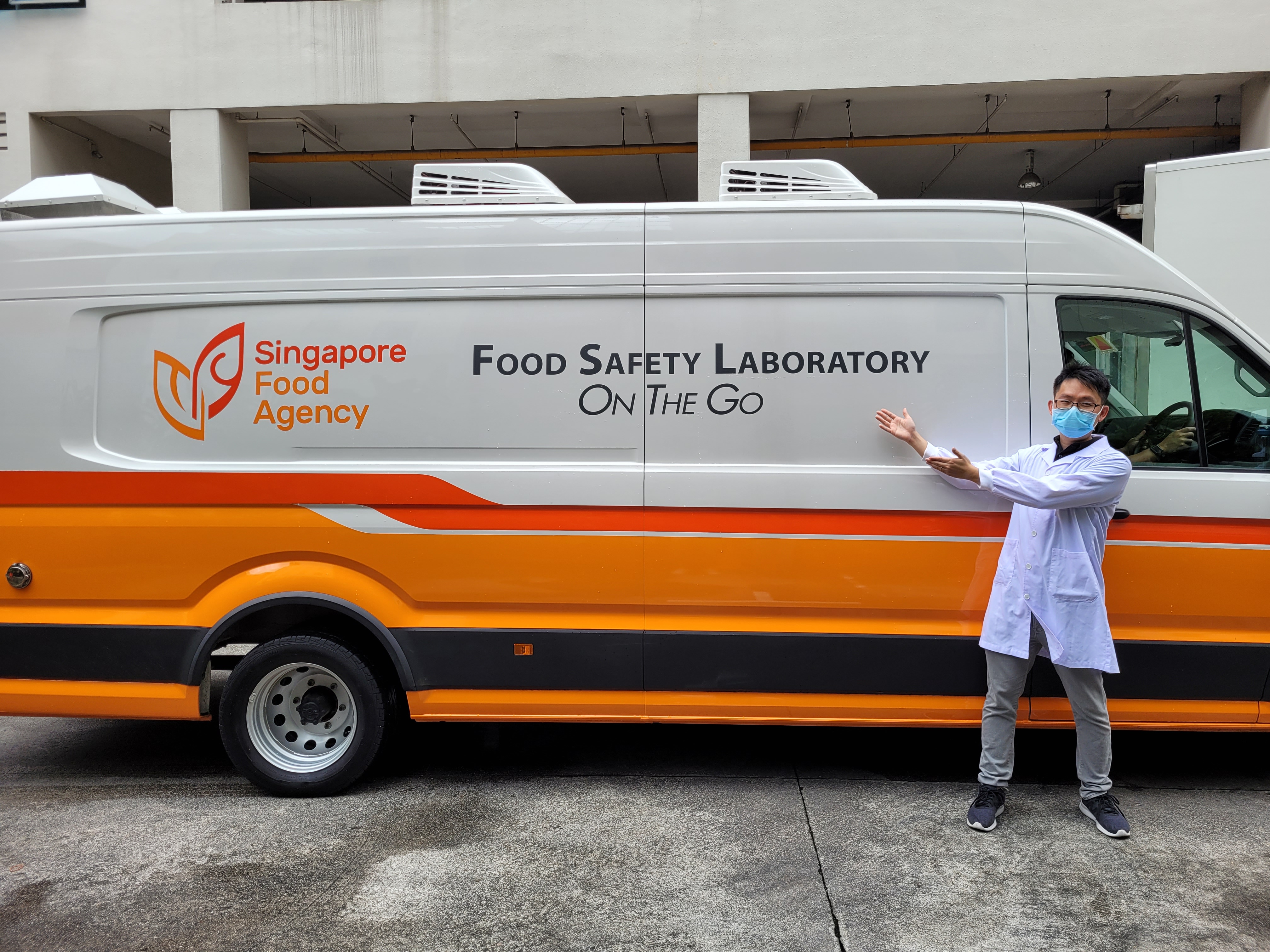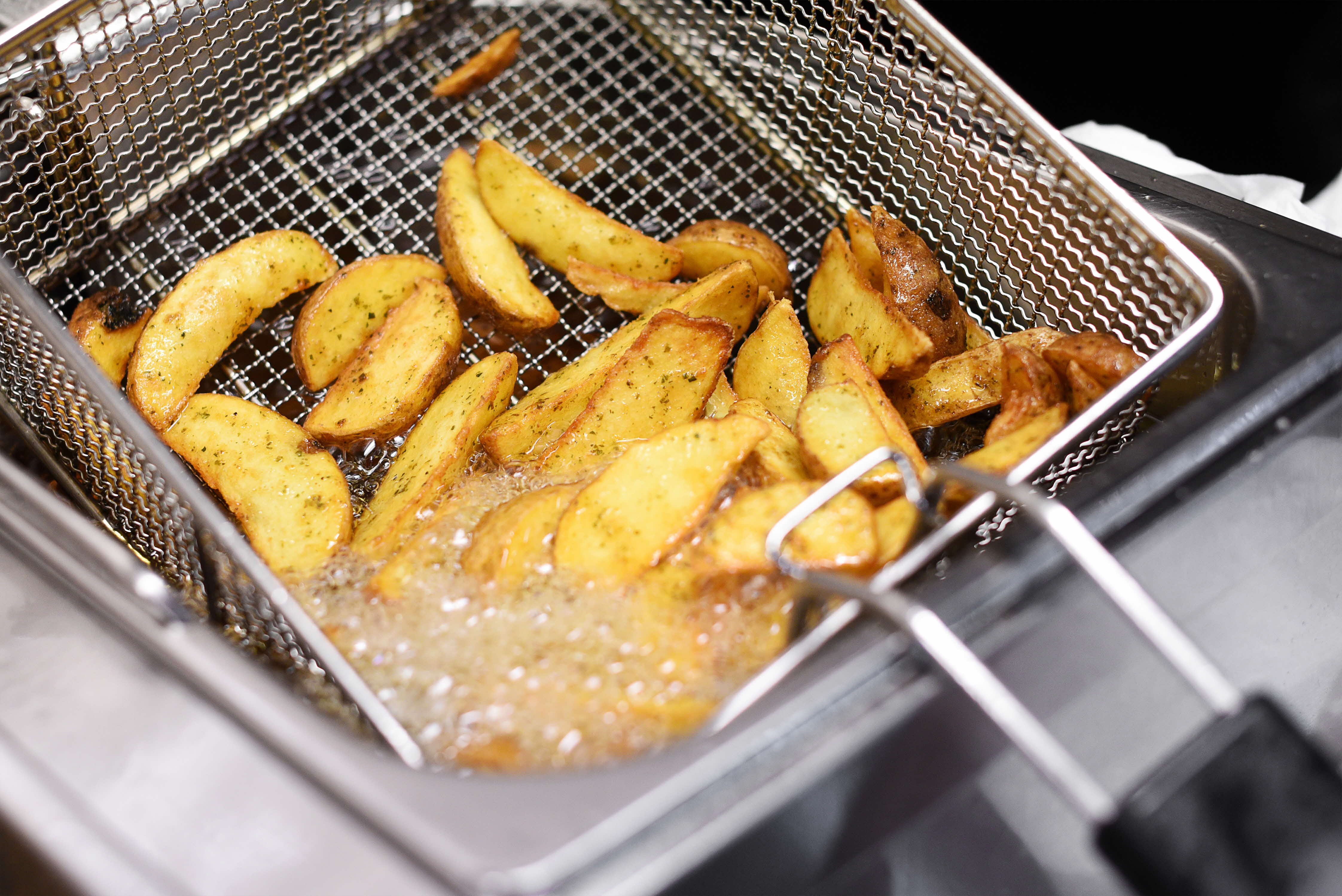
Introducing SFA’s Mobile Laboratory, equipped with advanced food testing and diagnostic technologies.
Did you know that SFA’s mobile lab was deployed to support this year’s National Day Parade? Yes, that’s right. SFA’s newest ride is a Mobile Laboratory! Enter the vehicle and you’ll find it kitted out with a suite of food testing and diagnostic technologies.
Equipped with multidisciplinary testing capabilities to support a wide range of food safety emergencies and operations, SFA’s mobile lab provided on-site testing of food contact surfaces at food caterers for this year’s NDP, to ensure that the food prepared for such mass participation events is safe for consumption.
The mobile food lab is the result of SFA’s brainwave to harness cutting-edging technologies to enable on-site food safety testing and foodborne outbreak investigation. Armed with on-the-spot lab capabilities, quick decisions can be made based on scientific evidence gathered from the mobile lab, thus achieving greater operational efficiency. This would strengthen SFA’s food safety system to ensure food safety from farm to fork.

SMS Koh Poh Koon checking out the Gas Chromatography Mass Spectrometry instrument during a tour of the mobile lab.
Rapid response to food emergencies
SFA’s mobile lab is designed for faster reaction to food safety emergencies. In the event of an emergency, it acts as a first responder to the scene to gauge the nature, severity and scale of food safety incidents. By conducting on-site detection of potential biological, chemical and radiological hazards, data from the mobile lab will help SFA quickly size up the situation and formulate an appropriate response.
That’s not all. Stationing the lab at the food safety incident site offers several other advantages. For one, SFA is able to check on the mitigation measures in place and provide real-time feedback on their effectiveness. The lab can also leverage its testing capabilities to monitor hazard levels when a food safety incident is evolving.
Consider the following scenario: An ammonia gas leak is reported at a local abattoir. Relevant agencies including SFA swing into action. SFA officers can rapidly move in to conduct sample testing on-site to ascertain the level of contamination caused by the leak, and ensure that the meat products at the abattoir are safe and free from ammonia contamination.
Timeline needed for testing to take place is now substantially compressed as sample collection and testing can occur seamlessly. Swift decision making can thus be done on-site based on scientific data generated from the mobile lab.

With the mobile lab, rapid on-site screening for causative pathogens can be conducted on surface swab samples to guide more precise and effective sampling to support SFA’s food safety investigation, enabling an earlier chance of mitigating the on-going foodborne transmission.
Supporting SFA’s daily core functions
The mobile lab is a timely addition to SFA’s arsenal of tools in fighting food safety threats. Having a lab on the go strengthens service delivery and operational efficiency in the agency’s day-to-day functions.
Need to conduct quick onsite swabs for pathogens? Conducting complex farm inspection and investigation cases, and need testing facilities on standby? These are some of the scenarios where the mobile lab plays a pivotal role in supporting our food safety investigators.
| Cases of fruits and vegetables smuggled into Singapore can occur from time to time. Illegally imported food products from unknown sources pose food safety risks such as excessive pesticide residues. That’s where the SFA mobile lab comes in. By conducting on-site testing during inspection checks, SFA officers can take immediate enforcement actions, which serve as a powerful deterrence against such errant behaviour. |
Conclusion: Food safety is a shared responsibility
To ensure that the food we consume is safe, SFA is on the constant look-out for ways to strengthen efficiency and improve workflow. The introduction of the mobile lab is a good case in point.
But food safety is ultimately a shared responsibility. Whether you are a consumer or a part of the food industry – everyone plays an integral part. Food importers and F&B operators alike need to adhere to food safety regulations and ensure good food safety practices. Consumers can educate themselves by equipping themselves with knowledge of food safety risks and adopting good food safety practices. Only with these in place, can Singapore be truly known as a paradise for delicious and safe food.



